print Print...
 (by Chris Cillizza, Washington Post) – …It’s time for you to start paying attention to the 36(!) gubernatorial races on the ballot this fall — where incumbents of both parties are in deep trouble.
(by Chris Cillizza, Washington Post) – …It’s time for you to start paying attention to the 36(!) gubernatorial races on the ballot this fall — where incumbents of both parties are in deep trouble.
What’s fascinating about the list of governors who won’t, or might not, hold on to their jobs in November is how many of them sit in states where victory should amount to a layup. Democratic incumbents in Connecticut and Illinois face serious threats. And in Kansas, Gov. Sam Brownback (R) is somehow fighting for his political life even though the Sunflower State is one of the most GOP-friendly in the country.
That’s what differentiates gubernatorial races from federal contests — and makes them arguably more compelling. Because the issues in the state races tend not to be federalized — and aspirants don’t necessarily have to defend the unpopular national figures in their parties — outcomes are often determined solely by the quality of the candidates and the campaigns they run.
Below are the 12 races considered most likely to result in a switch in party control Nov. 4. The No.1 race is the most likely switcher — but you already knew that.
12. Arizona (Republican-controlled). State treasurer (and former Cold Stone Creamery chief executive) Doug Ducey registered a convincing win in a crowded GOP primary. He faces Democrat Fred DuVal, a former state Board of Regents chairman. Every poll shows a very tight race. But this is a tough state for Democrats. Early edge: The Ice Cream Man.
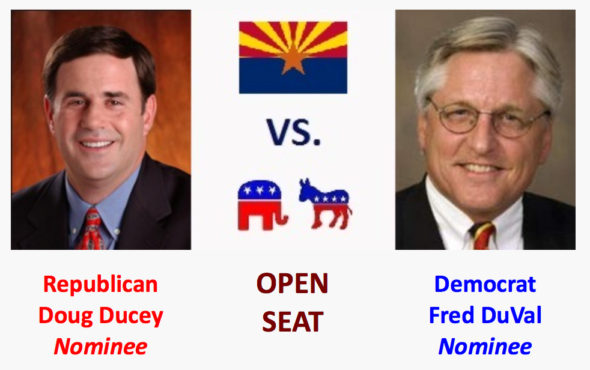
Arizona
11. Georgia (R). The good news for Gov. Nathan Deal is that he has led in the past four nonpartisan public polls of this race. The bad news: Three of them showed him leading state Sen. Jason Carter (D) by just one point.
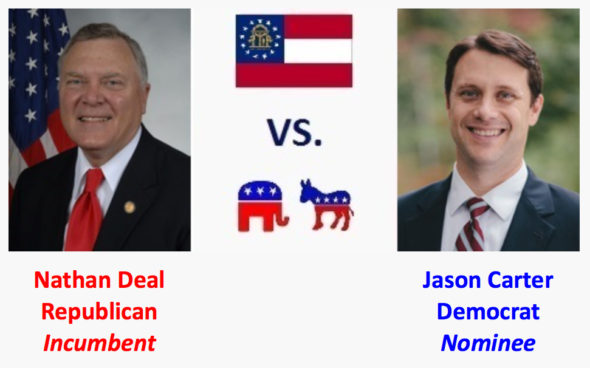
Georgia
10. Colorado (Democratic-controlled). How vulnerable is Gov. John Hickenlooper? It depends on which poll you are looking at. A recent Quinnipiac University survey showed him down 10 points to former congressman Bob Beauprez (R). A USA Today-Suffolk poll, meanwhile, showed a neck-and-neck race. Either way, it’s clear Hickenlooper has a real fight on his hands.
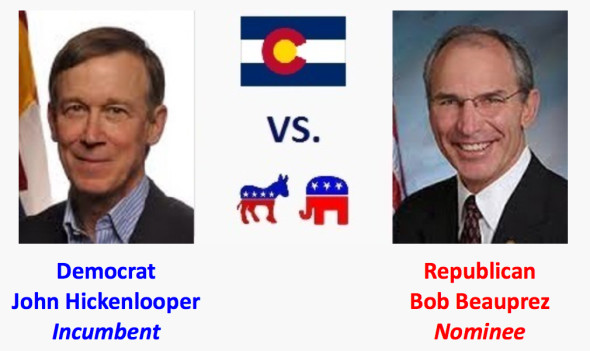
Colorado
9. Wisconsin (R). About a month ago, the national press corps — us included — realized that businesswoman Mary Burke (D) posed a major threat to Gov. Scott Walker. Walker seems to have regained his footing of late, however, and polling suggests he has a slight edge.
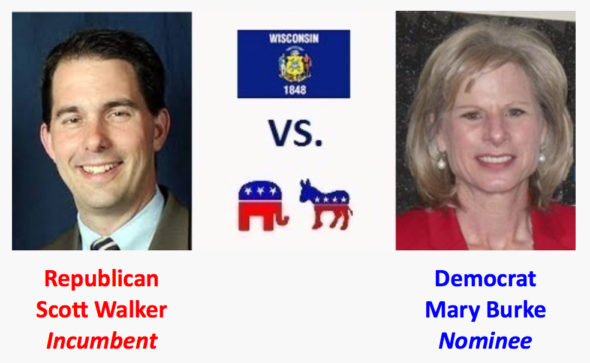
Wisconsin
8. Michigan (R). Believe it or not, there are no debates set in this race between Gov. Rick Snyder and former congressman Mark Schauer (D). It’s hard to believe that will hold up in a competitive contest in one of the most populous states in the country.
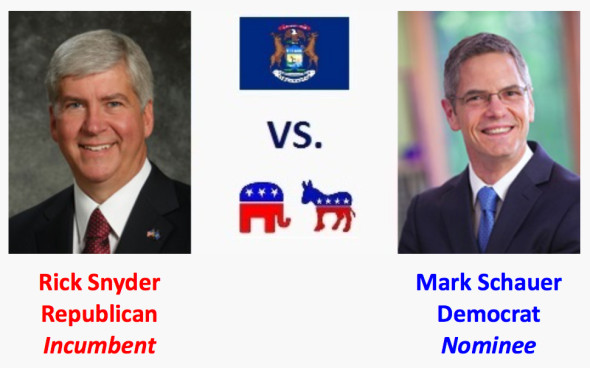
Michigan
7. Florida (R). Gov. Rick Scott has long been near the top of our list of the most vulnerable governors. But he is showing surprising resilience. And Charlie Crist (D) is, well, Charlie Crist.
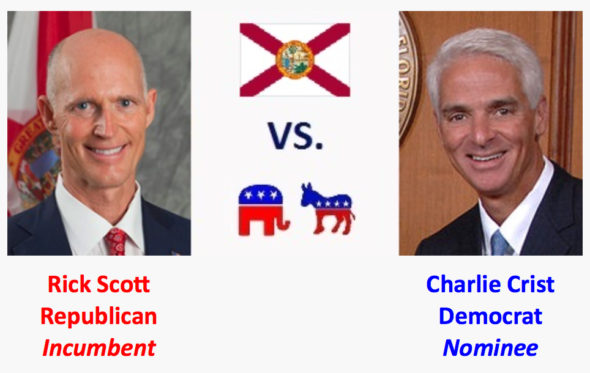
Florida
5. (tie) Kansas (R). Being a Republican incumbent should be enough to get you reelected in a state as conservative as Kansas. But Brownback is in real trouble after tearing the GOP in the state apart thanks to a deep set of tax cuts he championed over the objections of the party’s more centrist wing. State Rep. Paul Davis (D) has been the beneficiary of all the ill will directed at Brownback, but a story about his presence at a strip club where there was a drug bust, when he was 26 and unmarried, could be problematic.
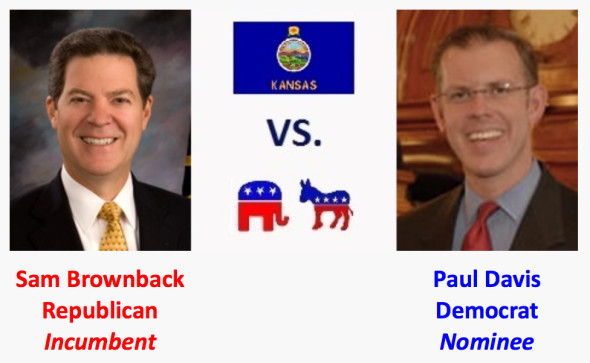
Kansas
5. (tie) Illinois (D). This is a lot like Kansas: an incumbent with the right letter by his name but the wrong image. Gov. Pat Quinn has shown some signs of life of late, but it’s an uphill climb.
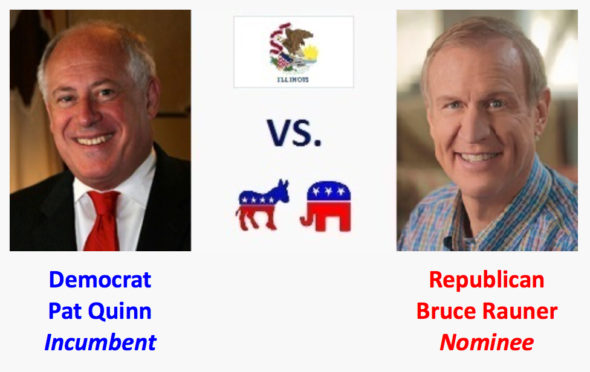
Illinois
4. Connecticut (D). The Constitution State isn’t an obvious Republican target. But Gov. Dan Malloy won the office by only 6,400 votes in 2010, and businessman Tom Foley (R) is back for a rematch. Malloy has sought to cast Foley as Connecticut’s version of Mitt Romney – a plutocrat focused on feathering his own nest rather than looking out for the average person. Foley has hit Malloy mostly for the state’s relatively slow economic growth. And Foley just took a six-point lead in a recent Quinnipiac University poll.
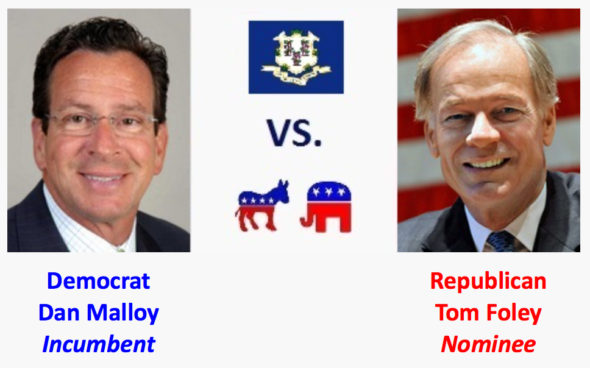
Connecticut
3. Maine (R). Gov. Paul LePage, to his credit, has managed to stay relevant for reelection despite a series of outlandish statements and that he is too conservative for the state. We thought when Rep. Mike Michaud (D) got in the race – a solid Democratic nominee – it was probably curtains for the gaffe-prone incumbent. But independent Eliot Cutler keeps pulling just enough of the vote to make this competitive – and was recently endorsed by Sen. Angus King (I).
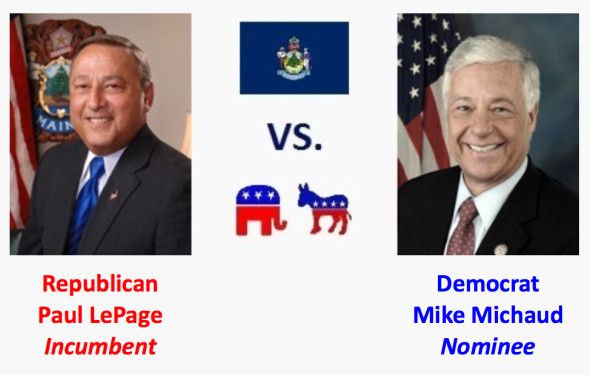
Maine
2. Arkansas (D). Former congressman Mike Ross was a blue-chip Democratic recruit, but recent polls show him trailing former GOP congressman Asa Hutchinson. The state may just be too Republican for Ross to win.
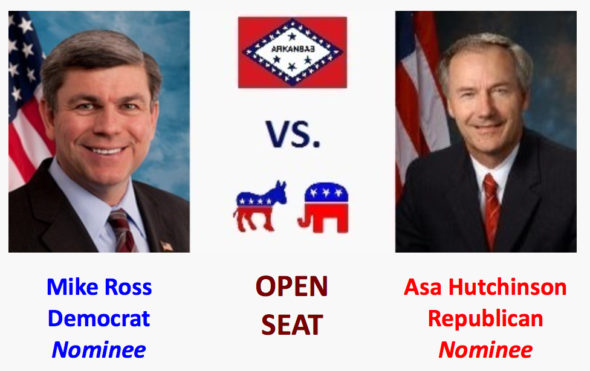
Arkansas
1. Pennsylvania (R). The only question here is how much damage Gov. Tom Corbett’s impending loss will cause his party downballot. Polling has shown businessman Tom Wolf (D) with a 20-plus-point lead over Corbett, who has spent the past 18 months as the nation’s most endangered incumbent.
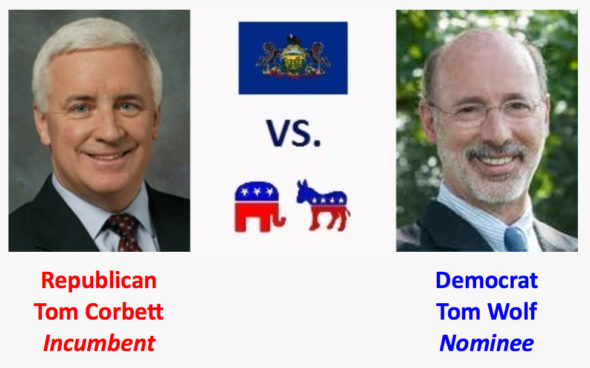
Pennsylvania
Aaron Blake and Sean Sullivan contributed to this column.
Reprinted here for educational purposes only. May not be reproduced on other websites without permission from The Washington Post.
Questions
1. List the 14 states which are not holding gubernatorial elections this year.
2. a) List the 12 gubernatorial races The Washington Post’s Chris Cillizza says must be watched this fall.
b) What is significant about these races?
3. List the current number of Democratic, Republican and Independent governors in the U.S.
4. What differentiates gubernatorial races from federal races, according to Mr. Cillizza?
NOTE: If there is no gubernatorial election in your state this year, choose a neighboring state to answer the following questions.
5. List the following for your state’s gubernatorial election:
a) Who is the current governor?
b) List the candidates for governor and party affiliation for each.
c) Find the official website for each candidate and read his/her “Issues” page. (Do an internet search for “___ ____ for governor” to find each website.) With which candidate do you agree on most issues?
6. a) What are term limits?
b) How many states have term limits for governor? In how many states are there no term limits for governor?
c) What are the term limits for governor in your state? (find the answer at http://ballotpedia.org/States_with_gubernatorial_term_limits)
CHALLENGE: Most candidates for governor have held or will soon hold debates. Watch at least one debate between the candidates. Which candidate do you think made the stronger argument for his candidacy? Explain your answer.
(HINT: Do an internet search for “c-span.org governor debates” – many will come up on the results page; or search for the name of your state+c-span.org governor debates)
Resources
National Governors Association: nga.org/cms/governors/bios
C-SPAN Facebook page on gubernatorial debates: facebook.com/notes/c-span/c-span-campaign-2014-debates
StudentNewsDaily’s “Election Resources” studentnewsdaily.com/election-resources-for-teachers
Daily “Answers” emails are provided for Daily News Articles, Tuesday’s World Events and Friday’s News Quiz.



